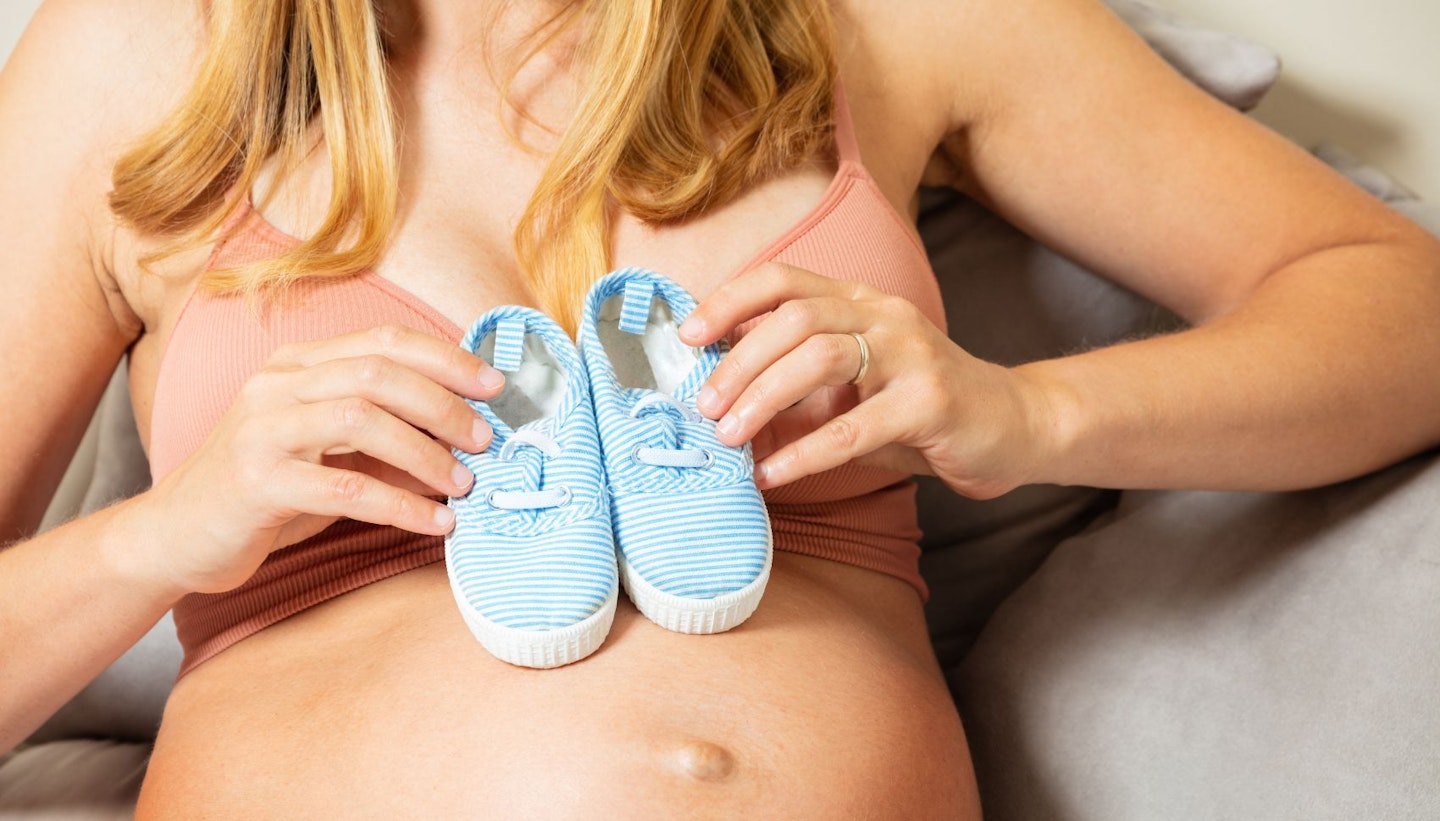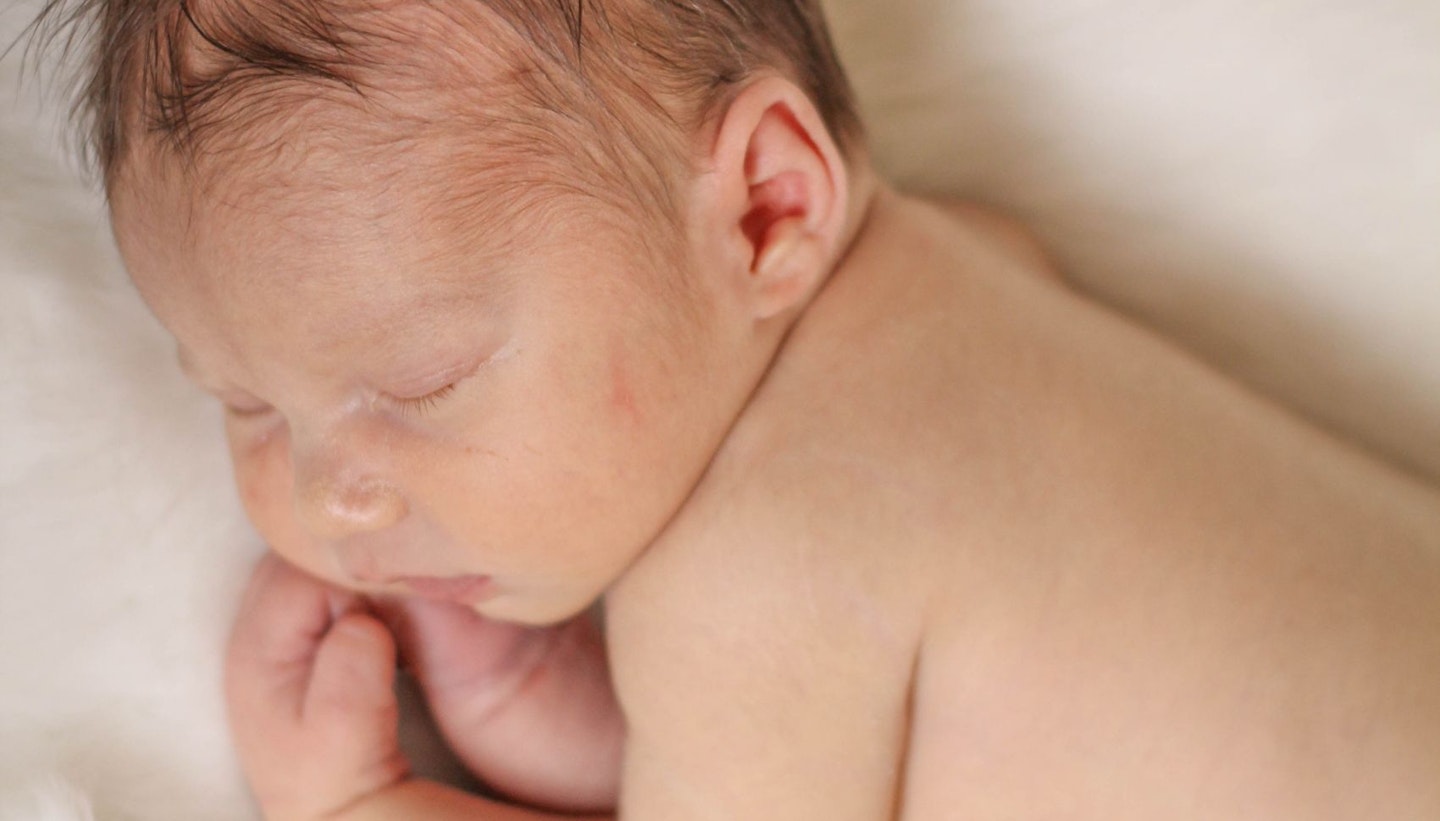
Medically Reviewed by: Lesley Bland
When I was pregnant, I often got asked if I wanted a baby girl or a baby boy. My response was always the same: with a smile, I’d say, "Either is fine as long as the baby is healthy—that’s all that matters!" But if I’m being honest, I secretly hoped for a baby boy, and I was blessed with one.
So, if you're dreaming of a bouncing baby boy, I completely understand. You may even be pregnant already and looking into the signs it could be a boy. Personally, I didn’t do anything specific to try and influence the gender of my baby, but many parents wonder if there’s anything they can do to increase their chances of having a little boy.
While science tells us that the baby's gender is mostly down to chance, there are plenty of theories, tips, and even myths that claim to help sway the odds. To help you separate fact from fiction, we spoke with midwife Lesley Bland. From diet changes to timing intercourse, we’ve gathered expert-backed facts and common myths surrounding baby boy conception.

Is there a guaranteed way to conceive a baby boy?
Midwife Lesley shares, “The bottom line is that it’s really up to chance. The sex of the baby is determined by which sperm—carrying either an X or a Y chromosome—fertilises the egg.” The egg always carries an X chromosome, and whether it’s an X or a Y sperm that fertilises it determines if you’ll have a boy or a girl.”
She adds, “Pregnancy old wives’ tales are really marvelous and entertaining but aren’t evidence-based at all. They’re simply fun stories passed down through the generations that have fabulous 50:50 odds of being right at guessing the sex of an unborn baby!” However, she continues, “Can you imagine the extreme lengths you’d need to go to ensure only a single Y sperm reaches the egg? That’s quite the challenge!”The only guaranteed way to choose your baby's sex is through medical procedures like Pre-Implantation Genetic Testing as part of in-vitro fertilisation (IVF). This process involves selecting an embryo of a specific gender before implantation. While gender selection for non-medical reasons is illegal in countries like the UK, it’s permitted in places like the United States. Some celebrities, such as John Legend and Chrissy Teigen, have famously used this method for their daughter, Luna.
How is a baby’s sex determined?
The moment sperm fertilises the egg is when the baby’s sex is decided. A woman’s egg always carries an X chromosome, while a man’s sperm can carry either an X (for a girl) or Y (for a boy) chromosome. Whichever sperm reaches the egg first determines the baby’s sex.
Lesley explains, “Genetics dictate that females have XX chromosomes, and males have XY chromosomes. The sperm that fertilises the egg determines the sex. So, there are complex factors at play in every conception, making it impossible to guarantee one sex over the other.”
Fertile days for a baby Boy: Why timing matters
Many people believe that timing intercourse around ovulation can increase the chances of having a baby boy. According to the popular Shettles Method, male (Y chromosome) sperm are faster swimmers but less resilient than female (X chromosome) sperm.
Lesley clarifies, “There’s no guaranteed method, but the Shettles method suggests that male sperm swim faster but don’t survive as long. To increase the chances of a boy, try having sex on the day of ovulation or just after. This is when the male sperm, which are quicker swimmers, might reach the egg first.”
The Shettles method recommends the following for increasing your chances of conceiving a boy:
-
Have sex on the day of ovulation or just after: Male sperm may reach the egg faster when it’s freshly released.
-
Avoid intercourse in the days leading up to ovulation: Female sperm are thought to outlast male sperm if sex occurs too early.
Tracking ovulation accurately is key for this method to work. Lesley suggests using ovulation predictor kits (OPKs), monitoring basal body temperature (BBT), or observing changes in cervical mucus to identify your fertile days.
That said, it’s important to remember that there’s no solid scientific evidence to confirm that this method actually increases your chances of having a boy. While it’s an interesting theory, studies haven’t found a clear link between timing and baby gender. So, while timing intercourse as described may seem logical, it’s not something you can rely on for guaranteed results.

Best position to conceive a baby boy
Certain positions are believed to give male sperm a better chance of reaching the egg. The Shettles method suggests that deeper penetration may favour male sperm. Positions like doggy style, where sperm is deposited closer to the cervix, may help the faster male sperm swim to the egg first.
Lesley also adds, “There’s no scientific proof that positions alone can guarantee a baby boy, but deeper penetration is thought to give male sperm a head start.”
Does female orgasm matter?
Lesley explains, “Shettles also suggested that a woman’s orgasm may create a more alkaline environment in the vagina, which some believe favours male sperm. However, there’s no solid scientific evidence to back this up.” But, as she says, it doesn’t hurt to try!
Lifestyle and dietary tips to increase chances of having a boy
1. Diet
Some theories suggest that eating potassium-rich and high-calorie foods could help. Consider adding the following to your diet:
-
Bananas
-
Potatoes
-
Spinach
-
Fish and fresh fruit
Conversely, some recommend reducing dairy products and acidic/spicy foods.
A study published in Proceedings of the Royal Society B looked at 740 newly pregnant women in the UK and asked them about their diet the year before they got pregnant. The women who ate breakfast cereals, potassium-rich foods, and more calories each day tended to have more boys compared to those who skipped breakfast and ate fewer calories.
But, experts at WebMD have some important advice. While the study found a connection between diet and having a boy, there's no solid proof that what you eat actually affects whether you’ll conceive a boy or a girl. In other words, it’s more of a coincidence than a clear cause-and-effect situation.
So, while it’s fun to think that breakfast could be the secret to having a boy, there’s no guarantee!
2. Sperm health
Experts suggest that the male partner avoid ejaculation for 4-5 days before ovulation.
Switch to loose boxer shorts: Experts says tight underwear may raise the temperature of the testicles, reducing sperm health.
Stay cool: Avoid hot baths, saunas, and prolonged laptop use on the lap. Studies suggest that exposure to heat and electromagnetic fields (EMFs) from devices like computers can impact male reproductive health and sperm quality.
What’s fact and what’s fiction?
With so many claims about how to conceive a baby boy, it’s important to separate fact from fiction:
Chinese gender chart: While fun to try, there's no scientific evidence to support its accuracy.
Moon phases: There’s no evidence that lunar cycles affect conception outcomes.
Special diets: While some studies suggest a possible link between maternal diet and baby’s sex, the evidence is inconclusive.
Sexual positions: While deep penetration makes theoretical sense, there’s no definitive proof it influences gender determination.
Lesley sums it up perfectly, “The most important thing is that your baby is healthy, regardless of gender. There are no guarantees when it comes to conceiving a boy naturally, but trying these tips can be a fun and proactive part of your journey.”
So, if you're hoping for a son, good luck—and remember, whether it’s a boy or a girl, your little one will be perfect.
Lesley Bland has provided her expert advice and medically reviewed this article. Lesley is a Registered Midwife and Consultant Midwife for My Expert Midwife. She began her Midwifery career working in large teaching hospitals rotating through all clinical areas with particular emphasis on antenatal and intrapartum care. Lesley qualified as a mentor of students and developed a passion for education specialising as a Clinical Educator teaching the maternity multidisciplinary team.
Anne Lora Scagliusi is a Senior Digital Writer at Mother & Baby. She is a Scotland-based journalist with over a decade of international writing experience, specialising in women’s health, maternal mental health, and wellness. Her work has been featured in Vanity Fair, Marie Claire, and Glamour and has appeared on several Vogue global editions. She is mum to a one-year-old bambino and lives between Italy and the UK. You can follow her on Instagram.
